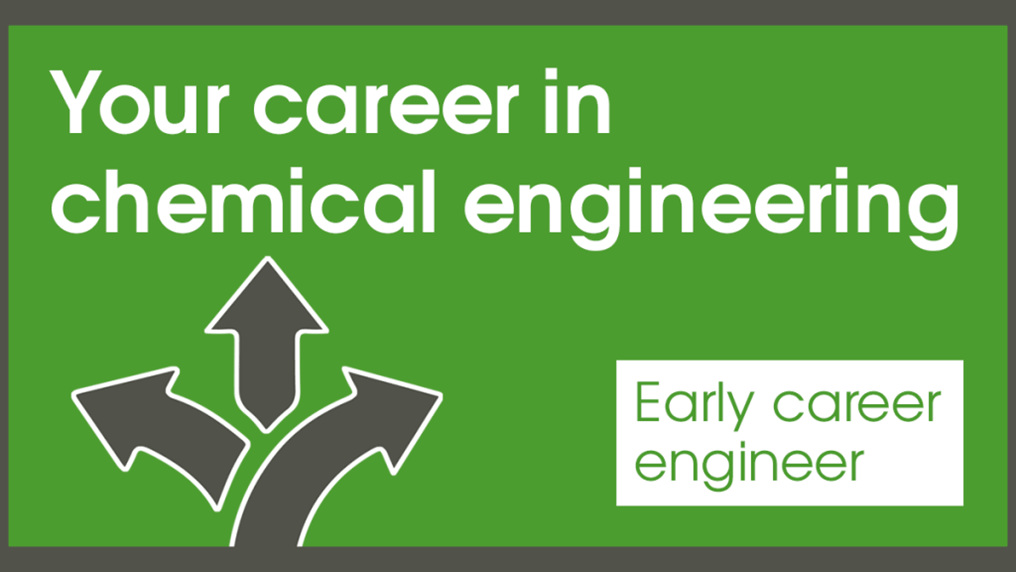Your career in chemical engineering – Early career engineer

8th November 2021
For the second in our new blog and video series, Your career in chemical engineering, we spoke to Joe Agnew, Kit Wayne Chew and Olivia Sweeney to understand how they got to where they are now in their career.
The early career engineers also share practical tips for those currently at the start of their career who are looking for roles, as well as why they enjoy their roles in chemical processes, microalgae research and lecturing, and plastics recycling, respectively.
Starting out
Joe Agnew
Following his Master’s degree in Chemical Engineering at the University of Nottingham, UK and a year in industry with chemicals firm Infineum, Joe secured a graduate engineer role on the IChemE Accredited Company Training Scheme (ACTS) at engineering consultancy Wood plc.

After gaining project design experience across the upstream, midstream and downstream sectors of the oil, gas and chemicals industry, and enhancing his core process engineering skills, he obtained a new opportunity at Nouryon in Sweden.
As a Senior Process Technologist he focusses on process development and optimisation at a number of different production sites, as well as, the engineering and project management of growth projects for production expansion. But why did he choose his current role and organisation?
“For site experience, international exposure, and personal development,” said Joe.
“Working internationally, you get to work with people from different cultures, different backgrounds and adapt to different ways of working. Gaining site experience enhances your competence as an engineer; getting to see things in real life you’ve designed and getting a feel for what their size are compared to seeing it on paper. For personal development: you need to push yourself out of your comfort zone and take on more project responsibility.”
Kit Wayne Chew
Xiamen University Malaysia Lecturer and Researcher Kit Wayne initially planned to work in industry after completing his Master’s degree in engineering at the University of Nottingham, Malaysia. However, one of his lecturers motivated him to undertake a PhD and apply for a research assistant job at the University of Nottingham, and he’s never looked back. After four years there, he gained a new opportunity at Xiamen University Malaysia.

Now, he lectures in chemical engineering drawing, materials science and chemistry in materials.
He also supports five final year undergraduate students on their different projects: disposal of hazardous gas; developing a more efficient system for extracting lipids in microalgae; creating an automated system to detect the productivity of microalgae; extracting pigment compounds from microalgae; and bioremediating wastewater for microalgae growth and lipid production.
He’s also to conducting his own research for finding renewable resources, such as microalgae, to use with a novel multi-phase partitioning technique he’s developed to purify biomolecules which can then be used to produce biofuels and create vitamins and supplements.
Kit Wayne said: “Apart from research, I also believe in sharing the knowledge I’ve gained. In being a lecturer, I get to do the research I like to do, teach students on my expertise in my field, and I get to do some of the administrative work for this.”
He has worked hard to apply for local and national funding to enable the research to continue. This can be challenging in a highly competitive research environment, he said, but with the support from Xiamen University he aims to showcase his successful product to national grant boards to gain further support.
Olivia Sweeney
Olivia undertook several engineering internships in Islamabad, Pakistan and Romania Florida, USA before completing a Master’s thesis research project at Chalmers University of Technology, Sweden investigating how reaction conditions effect coking on catalyst during biofuel production from tall oil.

Seeking organisations that resonated with her values to do something that was good for the people and planet, she secured her first role as a Creative Ethical Buyer for Aroma Chemicals at cosmetic company Lush Fresh Handmade Cosmetics based in Poole, UK.
After gaining experience and developing ingredients for Lush, she developed a keen interest in the circular economy. Excited to pursue this focus more on the role data plays, she moved to Resource Futures in Bristol, UK as a Consultant in the evidence team. Here she collects rubbish and data to understand what people recycle and how, to help provide information and solutions to influence policy, system and behaviour change.
Career achievements and aspirations
They’ve each accomplished many achievements in their careers so far.
Olivia was recognised in the 100 Most Influential Women In Engineering list in 2019 by Inclusive Boards. She works hard to promote STEM roles and the opportunities this can bring within minority communities, through campaigns such as the Royal Academy of Engineering’s This is Engineering, IChemE’s support of International Women in Engineering Day, delivering talks at Shell’s Make the Future Live and at COP26 in Glasgow, UK, and through radio content such as Radio 5’s Woman's Hour and Live Wire.
Prior to starting work, she said graduating after five years of study was her greatest achievement, and since having worked, it is creating her own ingredient for Lush.
Considering her future and that of her peers, she recognised: “It’s hard to know when to swap jobs. Should I stay in the same company? Should I stay in the same industry? The freedom of choice can be overwhelming.
“I still don’t know what I want to be when I grow up. My career aspirations are always changing because the more I get to know the industry, the more I discover the pathways that are open to me. I’m toying with the idea of doing a PhD, and maybe being my own boss is in my future as well. All I know is that I want to keep doing things that are good for people and planet.”

Joe is also enthusiastic about volunteering having been involved in many organisations to support professionals and young people in STEM careers. This includes on the IChemE’s Thames Valley Members Group committee and as an Early Career representative on IChemE’s inaugural Congress.
He was also particularly proud to be shortlisted as a finalist in the Equal Engineers’ Engineering Talent Awards 2020. His manager at Wood plc nominated him for his great technical project work and for his leadership work in promoting STEM subjects in the local community, trying to inspire the next generation of engineers with a focus on encouraging diversity and inclusion “so that engineering is representative of the world we live in”, Joe said.
He added: “My career aspiration is to become Chartered. I feel this peer recognition of fellow engineers is a significant milestone in one’s career and is something you can take forward if you decide to stay on a technical career path or pivot towards a commercial role.”
Kit Wayne has won several awards for his research, including the IChemE Malaysia Awards’ Young Researcher Award in 2020 and in the same category at the IChemE Global Awards shortly after.
Delighted at being recognised for his research and skills, he hopes to bring his research to commercial scale, as well as to in future be promoted to Professor and have a greater influence in teaching and research at the university.
Kit Wayne added: “I think industry can benefit a lot from this technology by implementing it in a large scale so they can produce more affordable nutritional products as well as to generate bioenergy from renewable sources – this is useful to counter the depleting fossil fuels.”
Tips for graduates seeking work
Joe advised those applying for graduate roles to determine three factors that are most important to them.
He said: “Firstly, where do you want to work (the location around the world)? Secondly, do you want to work in an office or on site – so what is the specific job role? Thirdly, what industry do you want to work in? Do you want to work in a traditional energy industry that’s always changing, or do you want to work in up-and-coming industries, like biotechnology?”
“Don’t get hung up with chemical engineering being in the job title because chemical engineers are everywhere, not just in the job’s description that describes that,” added Olivia. She recommended looking for companies that resonate with a person’s values and cross reference the chemical engineering skills they possess in the job description. But most importantly to seize opportunities.
“You don’t have to find the perfect job straight away - you can always change your mind later down the line - it’s important to get experience.”

Kit Wayne believes it can be beneficial for undergraduate and those at an early career stage to concentrate on developing their problem-solving skills.
“One of the key skills a graduate should have is critical problem-solving,” he said. “This is something that is greatly needed in Malaysia as we’re still a developing country. There are still lots of issues whether in industry or academia that could benefit from research and development by the younger generation, using their creativity and innovation with problem-solving skills, to adapt to different kinds of conditions. Graduates with these strengths will be able to proceed very well in whatever they do.”
Early career engineer: video
Watch this video to learn more from Joe, Kit Wayne and Olivia on challenges they’ve overcome and their advice to graduates preparing job applications.
Read other blogs in the Your career in chemical engineering series and see the full video playlist on our YouTube channel.
For more career resources for an early career level or to help with skills transition and professional development, visit www.icheme.org/career.